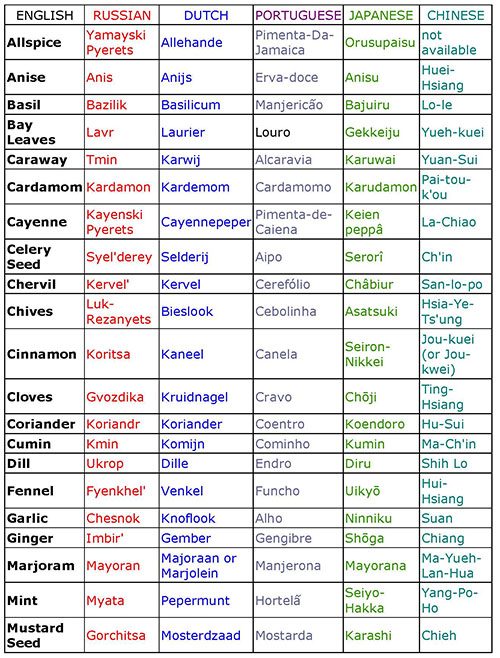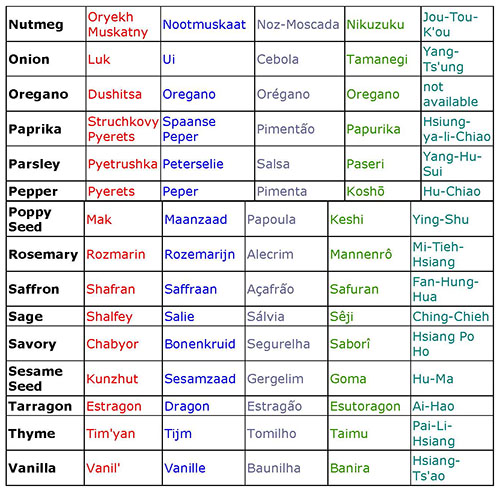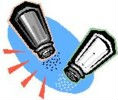Make the most of culinary herbs and spices.
Other articles you might enjoy:
1. Multi-lingual Herb and Spice Index
2. Basic Guidelines for Seasoning with Herbs and Spices
3. An Herb Gardener's Diary--Part Six
Another Multi-lingual Herb and Spice Index
by Sandra Bowens
Inspired by a request from a reader living in Mongolia for the addition of Russian names to the original herb and spice index, I decided to make a second page.
What follows is an index of 36 herb and spice names in five more languages--Russian, Dutch, Portuguese, Japanese and Chinese. The first index covers Spanish, French, German, Swedish, Italian and Arabic.
Maybe it will help some readers at the ethnic market or while traveling and others with translating my recipes to their own language. Even if you can't find a use for knowing these names, I hope you will enjoy learning a bit more.
This index is interesting to me because the languages have so little in common with each other. With the exception of the Chinese words, I think I could guess the seasoning for some of the words like cumin in Russian or allspice in Portuguese. Others like garlic or poppy seeds would be completely elusive! I notice the word "hsiang" comes up several times in the Chinese language row--I wonder if this means spice? (An alert reader wrote to answer my question: "Hsiang" or "xiang" means fragrance or aroma, it is used as a prefix or suffix in Chinese words that mean spices add fragrance to food or body. Thank you, GLI)
The resource here was Fredric Rosengarten, Jr.'s The Book of Spices. If you notice an error or want to make a comment, let us know. I would love to add Indian but do not have that information.



Here's one that's full of our favorite recipes because we wrote the book! It is also full of information, helpful hints and ideas for using herbs and spices in your kitchen.


